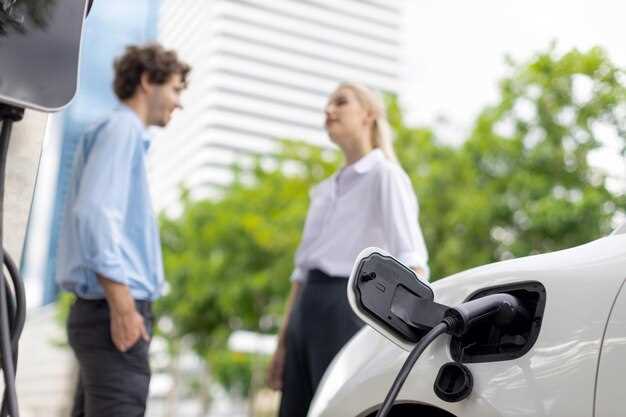
As the automotive industry undergoes a significant transformation, many consumers are beginning to explore the benefits of electric vehicles (EVs) compared to traditional gas-powered cars. One of the most compelling reasons to consider making the switch is the potential for substantial savings in fuel costs. With fluctuating gas prices and the growing efficiency of electric charging infrastructure, understanding the financial advantages of EVs is more critical than ever.
Electric vehicles offer an impressive reduction in fuel expenses. The cost of electricity for charging is often significantly lower than that of gasoline. This transition translates into lower operational costs for EV owners who benefit from the efficiency of electric motors. Additionally, many governments provide incentives, rebates, and tax benefits for purchasing an EV, further enhancing overall savings in comparison to conventional vehicles.
Beyond just fuel costs, ongoing maintenance expenses also play a crucial role in the cost-effectiveness of electric vehicles. EVs typically require less frequent servicing and fewer parts replacements than gas vehicles, resulting in further financial advantages. By examining the long-term economic impact, it’s clear that transitioning to an electric vehicle not only supports environmental sustainability but also provides consumers with a practical solution to rising transportation costs.
Analyzing Long-Term Savings on Fuel for Electric vs. Gas Vehicles

When considering the cost-effectiveness of electric vehicles (EVs) compared to gas vehicles, one of the most significant factors is the long-term savings on fuel. The fuel expenses associated with traditional gasoline-powered vehicles can accumulate substantially over time, especially as fuel prices fluctuate.
Electric vehicles offer a distinct advantage in terms of fuel costs. The average cost of electricity per mile is generally lower than the cost of gasoline, leading to notable savings for EV owners. For instance, while gas prices can vary dramatically, the electricity rates tend to remain more stable, allowing for a more predictable monthly budget concerning fueling costs.
Moreover, the efficiency of electric motors results in less energy consumption compared to internal combustion engines. An electric vehicle can typically travel further on a single charge than a gas vehicle can on a gallon of fuel, further enhancing savings. These factors combined make electric vehicles an attractive option for long-term financial planning.
In addition to lower fuel costs, EVs often require less maintenance, which can lead to additional savings over the vehicle’s lifespan. Unlike gas vehicles, electric cars do not require oil changes, and their braking systems often experience less wear due to regenerative braking technology.
Considering these elements, the fuel savings associated with electric vehicles become increasingly evident. Over time, the initial investment in an EV can be offset by the cumulative savings on fuel expenses, reinforcing the argument that electric vehicles are indeed a cost-effective choice for budget-conscious consumers.
Understanding Maintenance Costs: EVs Compared to Traditional Cars

When evaluating the total cost of ownership, maintenance costs play a significant role in the overall expenses for both electric vehicles (EVs) and traditional gas vehicles. EVs typically have lower maintenance costs due to their simpler mechanics. Unlike gasoline vehicles, electric cars do not require oil changes, fuel system maintenance, or exhaust system repairs, which can be both time-consuming and costly.
The absence of a combustion engine means that EVs have fewer moving parts, leading to reduced wear and tear. This translates into fewer components that require replacement or servicing over the vehicle’s lifespan. Brake maintenance is another area where EVs shine; regenerative braking systems extend the life of brake pads, leading to further savings over time.
On the other hand, gas vehicles often incur significant maintenance costs over the years due to engine-related issues, transmission repairs, and fuel system upkeep. The routine maintenance associated with gasoline engines can add up quickly, diminishing the perceived cost-effectiveness of these vehicles.
In summary, while the initial purchase price of an EV might be higher, the long-term savings on maintenance can significantly offset those costs. Consumers looking for a cost-effective option over time should consider the benefits of lower maintenance and the overall efficiency of EVs compared to traditional fuel-powered vehicles.
Government Incentives and Tax Breaks for Electric Vehicle Owners
Government incentives and tax breaks play a crucial role in making electric vehicles (EVs) more cost-effective compared to traditional gas-powered vehicles. These financial benefits are designed to encourage consumers to transition to fuel-efficient alternatives, contributing to a greener economy.
Many governments offer substantial tax credits for the purchase of electric cars, which can significantly reduce the overall cost. For instance, in the United States, buyers can benefit from federal tax credits that can range up to $7,500, depending on the vehicle’s battery capacity. This upfront savings can make the initial investment in an EV much more appealing.
In addition to federal tax incentives, various states provide their own incentives, such as rebates, reductions in sales tax, and exemptions from registration fees. These perks enhance the overall savings for EV owners, making it easier for consumers to opt for electric models over gasoline vehicles. Some regions even facilitate access to high-occupancy vehicle (HOV) lanes, further promoting fuel-efficient travel.
Moreover, many countries and local governments are investing in infrastructure improvements, such as enhanced charging stations, which reduce range anxiety and support the growing electric economy. These developments not only help EV owners save on fuel costs but also encourage widespread adoption by making charging more accessible.
Overall, the combination of tax breaks, rebates, and enhanced infrastructure provides a powerful financial incentive for consumers considering electric vehicles. As these initiatives continue to expand, they will undoubtedly reinforce the value proposition of EVs, aligning personal savings with broader environmental goals.


